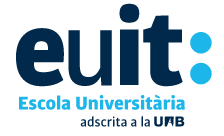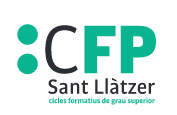Approaches to teaching and learning Practical Occupational Therapy skills : sharing best practice
Approaches to teaching and learning Practical Occupational Therapy skills : sharing best practice
- Amsterdam : ENOTHE Office, Hogeschool van Amsterdam, 2004
- 112 p. : il. ; 23 cm
- Occupational Therapy Education in Europe .
Bibliografia
Aim of the project
This book gives a description of the planning, progress and conclusions of the project "Approaches to Teaching and Learning 'Practical' Occupational Therapy Skills, sharing best practice". The aim of this project was to investigate:
on the one hand, which practical occupational therapy skills are taught in European institutes, and in what way
on the other hand, to develop 'best practice' for the future.
In fact, to answer the question: how can occupational therapy education be improved, without giving up on the traditional practical skills, including the creative and technical skills?
Set up and process of the project
To achieve the identified aim, a project team was formed consisting of ENOTHE members from different countries and with relevant backgrounds. They started out with a literature search. Following this, there have been several moments (for instance workshops, interviews) at which the project members have presented their findings to European occupational therapists. Eight schools were visited, where students also were asked for their opinion.
An overview of the chapters of the book gives a good impression of the course of the project:
Introduction
Surveys of current practice
The school visits 2002/3/4
Information collected from ENOTHE workshops
Narratives of skills classes from members of the project group
Notes from invited educators
Reflections, conclusions and recommendations
Summary of the project
The last chapter gives reflections on the course of the project, recommendations for follow-up and of course conclusions. In the conclusions, the following points (among other things) are discussed:
The project team advises schools not to be too eager in removing practical skills from the curriculum in favor of theory lessons. There must be a balance between theory and practice. As it turns out, students from schools with more theory lessons then practical lessons are good at explaining why they do something, but insecure about actually bringing theory into practice.
The team advises furthermore to include more Evidence Based interventions in the lessons, thus enabling the students to integrate this directly in their practical activity. However, the schools that have done this have also reduced the number of practical skills lessons, a thing the team does not advise.
Students on the whole have indicated that they really value the practical skills lessons, and want more of these, not less!
A point of attention for the follow-up is the question of how the profession of occupational therapy can be raised to and kept at a higher (academic) level, without sacrificing its unique quality of teaching; including teaching of practical skills. Is it possible to integrate practical skills lessons with more theory, thus teaching students why they do something, as well as how to do it?
In the field of research, occupational science, there is a renewed interest in the significance of practical occupation for the human being. If this trend continues, practical skills will remain of great importance for occupational therapy education.
9080581763
Ensenyament de Teràpia Ocupacional
Europa
Bibliografia
Aim of the project
This book gives a description of the planning, progress and conclusions of the project "Approaches to Teaching and Learning 'Practical' Occupational Therapy Skills, sharing best practice". The aim of this project was to investigate:
on the one hand, which practical occupational therapy skills are taught in European institutes, and in what way
on the other hand, to develop 'best practice' for the future.
In fact, to answer the question: how can occupational therapy education be improved, without giving up on the traditional practical skills, including the creative and technical skills?
Set up and process of the project
To achieve the identified aim, a project team was formed consisting of ENOTHE members from different countries and with relevant backgrounds. They started out with a literature search. Following this, there have been several moments (for instance workshops, interviews) at which the project members have presented their findings to European occupational therapists. Eight schools were visited, where students also were asked for their opinion.
An overview of the chapters of the book gives a good impression of the course of the project:
Introduction
Surveys of current practice
The school visits 2002/3/4
Information collected from ENOTHE workshops
Narratives of skills classes from members of the project group
Notes from invited educators
Reflections, conclusions and recommendations
Summary of the project
The last chapter gives reflections on the course of the project, recommendations for follow-up and of course conclusions. In the conclusions, the following points (among other things) are discussed:
The project team advises schools not to be too eager in removing practical skills from the curriculum in favor of theory lessons. There must be a balance between theory and practice. As it turns out, students from schools with more theory lessons then practical lessons are good at explaining why they do something, but insecure about actually bringing theory into practice.
The team advises furthermore to include more Evidence Based interventions in the lessons, thus enabling the students to integrate this directly in their practical activity. However, the schools that have done this have also reduced the number of practical skills lessons, a thing the team does not advise.
Students on the whole have indicated that they really value the practical skills lessons, and want more of these, not less!
A point of attention for the follow-up is the question of how the profession of occupational therapy can be raised to and kept at a higher (academic) level, without sacrificing its unique quality of teaching; including teaching of practical skills. Is it possible to integrate practical skills lessons with more theory, thus teaching students why they do something, as well as how to do it?
In the field of research, occupational science, there is a renewed interest in the significance of practical occupation for the human being. If this trend continues, practical skills will remain of great importance for occupational therapy education.
9080581763
Ensenyament de Teràpia Ocupacional
Europa


